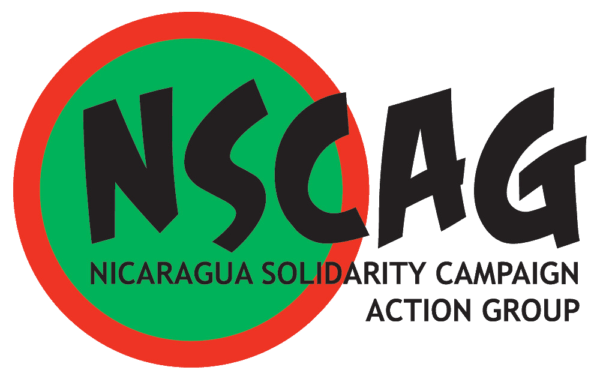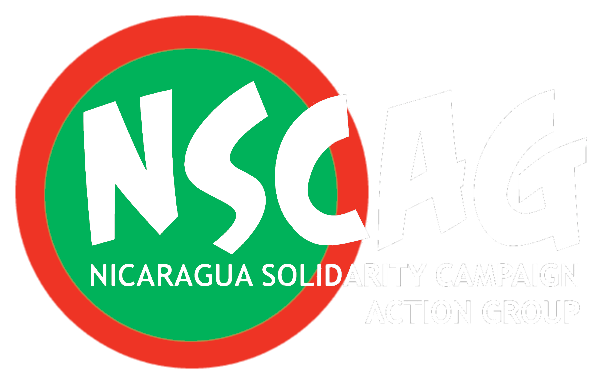Nicaragua Solidarity Campaign Action Group
18 October 2024
Part 4: A healthy child is the future of the Revolution
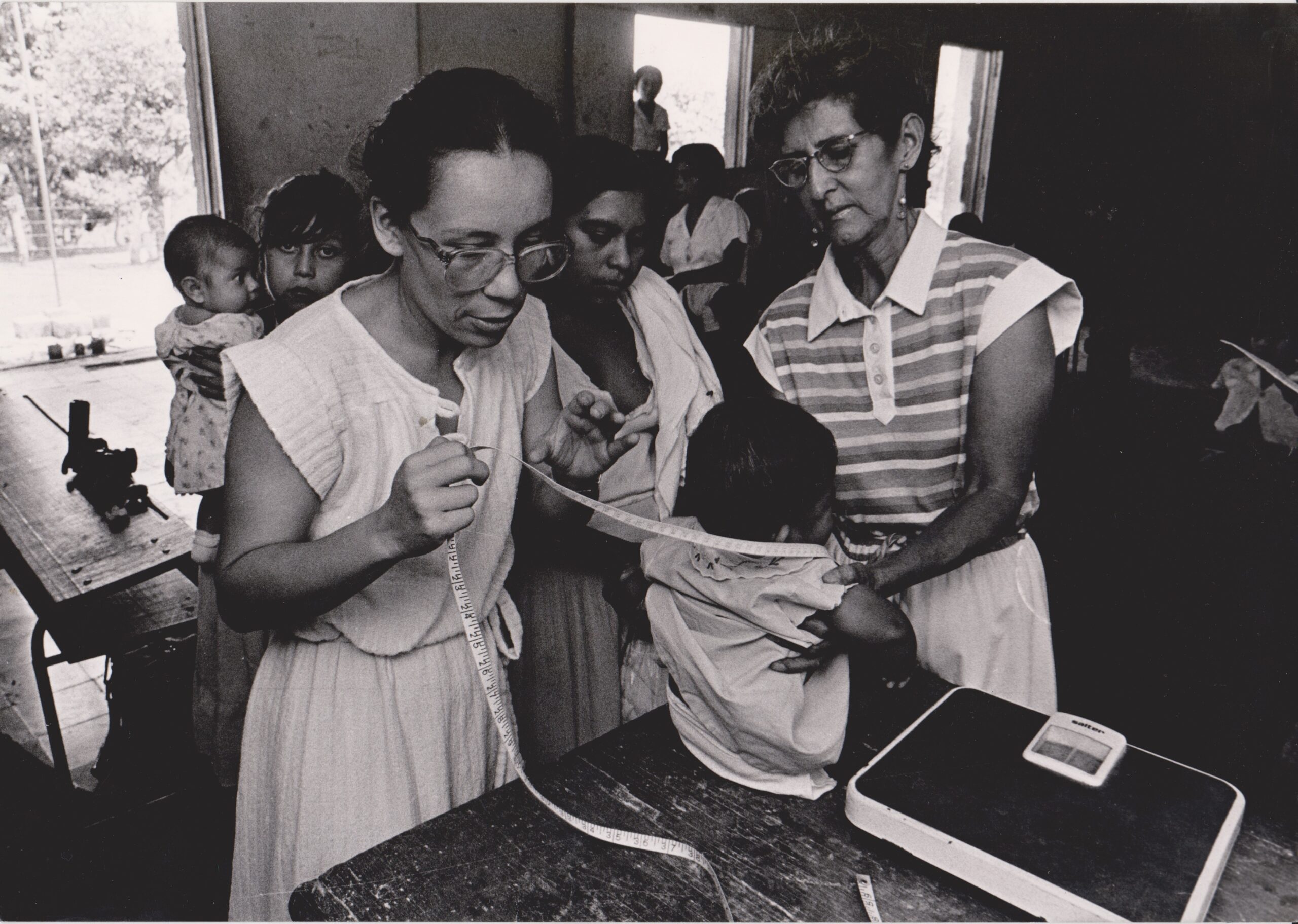
Part 4 of the diary of Maylin Heard, a member of a coffee brigade to Nicaragua 1986 organised by the UK Nicaragua Solidarity Campaign.
5 December 1986: Being filmed for a BBC documentary, a child is born in our ‘villa’; the red eyed tree frogs
I’m writing this so that I can give it to a BBC cameraman to post in the UK so that it won’t take three weeks to reach you.
Today is fine, sunny and dry. Adrian, the cameraman is filming us today, he is very nice, but it is embarrassing being filmed. The picking was relatively flat and easy, and the film gives no impression of what it was usually like. I was also filmed eating my beans and rice.
Eileen went with Geraldine to Matagalpa to change some money. When they joined the queue, the man in front introduced himself. He owns a plantation 45 km outside Matagalpa and was quite scornful of state farms. He tried to persuade Eileen and Geraldine to go and work for him: ‘I pay better, the food is better, and the bed will be better because you can share mine.’
That night, a singer from Managua was going to play at the school. Nearly everyone from the ‘Empresa’ (those responsible for the management of the state farm) turned up, they look very different from the mestizo campesin@s. much more poshly dressed, less shy and inhibited. They did all the dancing. The singer didn’t turn up, but everyone had a good time anyway.
A baby was born in our ‘villa’ on Sunday night to one of the campesinas who lives in one of the rooms here][.] [She could have gone to hospital, but chose to have a midwife here. The baby is a boy and we have clubbed together to buy him some clothes; clothes are so expensive here, just a small vest and a baby grow cost the equivalent of a month’s wages for a campesinx.
The teacher in the local school came to talk to us, mostly about the crèche that she runs. At the moment, it is funded by the ‘Empresa’ and only during the harvest, so that women can work all day. If it is successful, it will be eligible for state funding.
As a result of US war and sanctions, they are short of even the basics e.g, they use coffee sacks as hammocks with three babies in each…but the worst shortage is clothes.
The children only have one set of clothes, so they can’t send them outside to play in case they get wet. They told us about another crèche further up in the mountains that has plenty of clothes and a fridge. When the children arrive in the morning, they are immediately changed into crèche clothes and their own clothes are washed and ironed for when they go home.
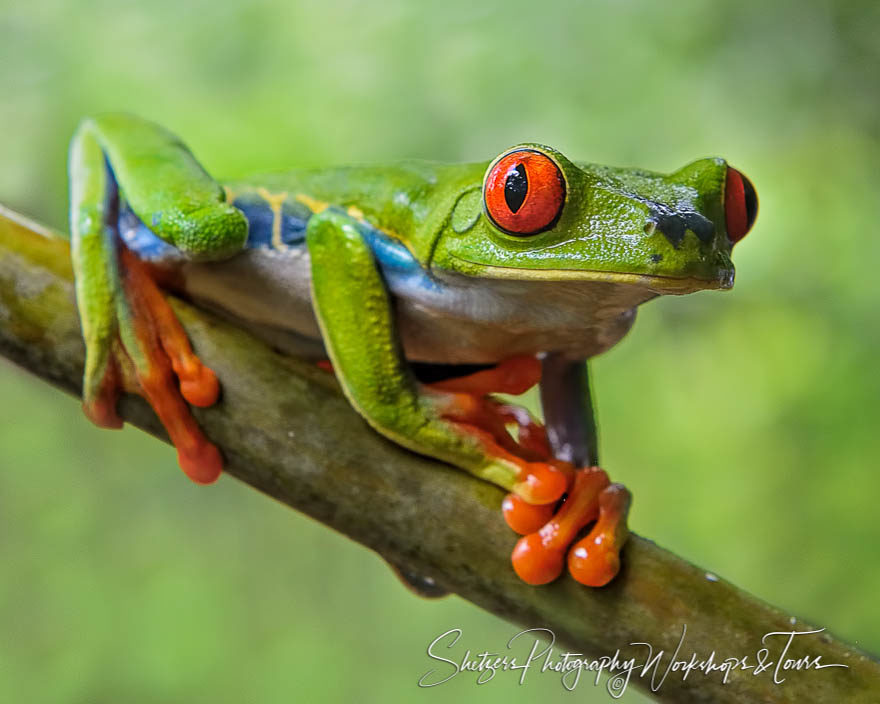
There is a wonderful tree frog here, which everyone is raving about: I saw one for the first time yesterday. They come in all different sizes but the one that I saw was about 3cm long, brilliant green with bright red pop eyes, vivid orange underbelly and feet, strip of blue down each side with yellow stripes. It looked unreal and fantastic.
I felt good this morning because I finished knitting a jumper last night, it was a nice day picking. I had a shower and two letters arrived from UK via Managua.
Mario, the bloke with the amazing voice who comes and sings to us every now and again may be coming this evening to be filmed and recorded. Adrian has also asked whether I can arrange a rendition of ‘Bread and Roses.’
PS: The cook has acquired a radio, which starts blaring out at 4am and continues all day. The station is Radio Insurrección and most of the songs are about coffee picking, punctuated by exhortations to go out and pick coffee. ¡Vamos a los cortes!
7 December 1986: Our food and bowel obsessions; Peter, the digestive biscuits hero; we join ‘Purisima’ celebrations; we buy ‘We want peace’ New Year cards.
I’m again in the comedor in San Ramon having my two eggs, bread and milk for breakfast. There are nine of us all scrutinising the papers with dictionaries at the ready.
I can’t believe how obsessional it’s possible to become about food. On the whole, I am resigned to it now, but we still talk about it almost exclusively (that and the state of our bowels, how often are we are going? Loose or hard?)
Last night, Peter produced a packet of digestive biscuits and gave us all one. He became an instant hero! Terry put on a tape of soul music. This constituted a party.
While we were waiting to make calls in Matagalpa, a woman from the US came past. She had been living here for two years and has loved every minute of it. She has spent the last four months working on a dairy farm. She says that Reagan is ready to fall as the press is out for his blood. Town was lively today as it is a major festival of the year, purisima (a celebration of the Immaculate Conception, more important than Christmas.)
Celebrating La Purisima
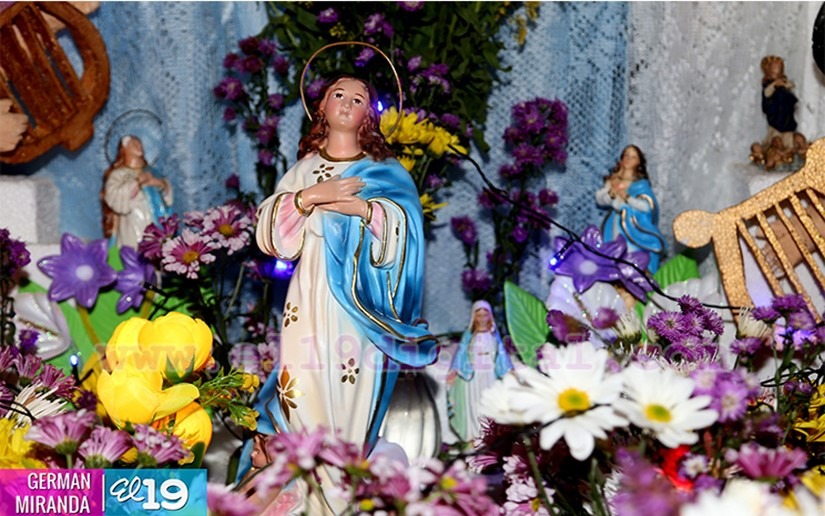

We have done some shopping, including New Year cards with messages like ‘We struggle for peace’, ‘We want peace.’ One shop had piped music stuck in a grove and sounds awful (ABBA!).
When we were in a café, we heard what we assumed were hundreds of firecrackers going off (either that or a contra attack). [T]hey were actually rockets, they have long sticks, you light them and then let go as they are about to go off. There are hundreds of military men and boys in town today.
Defending the Sandinista Revolution


There was an amazing sunset behind the mountains last night…the skies here are so incredibly clear that there seems to be ten times more stars than on Salisbury Plain [near where Marylin lived]. We didn’t get our soup this week. Amazing how such little things like that mean so much to us. But Maddy asked the cook for some hot water and we had cup-a-soup. I can’t bear it at home, but here it is delicious.
Later that night, Mario came for Adrian to record him. His voice is amazing, and he knows how to play an audience. My favourite song it ‘Arlen Siu’ about a Sandinista singer/songwriter /poet who died in combat in 1975 in the insurrection against the Somoza dictatorship: she was 20 years old.

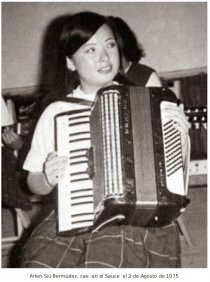

We went to the village for some celebrations. The children play a game where there is a large rabbit (the pinata) made out of paper and cotton wool stuffed with sweets suspended by a string from the ceiling, someone pulls the string to lower and raise this rabbit and make it move around. The children take it in turns to be blindfolded and beat the rabbit with a stick. Of course, all this deteriorates rapidly, eventually a child bursts it apart and everyone rushes to grab sweets (except the successful beater who is blindfolded and doesn’t know what the hell is going on).
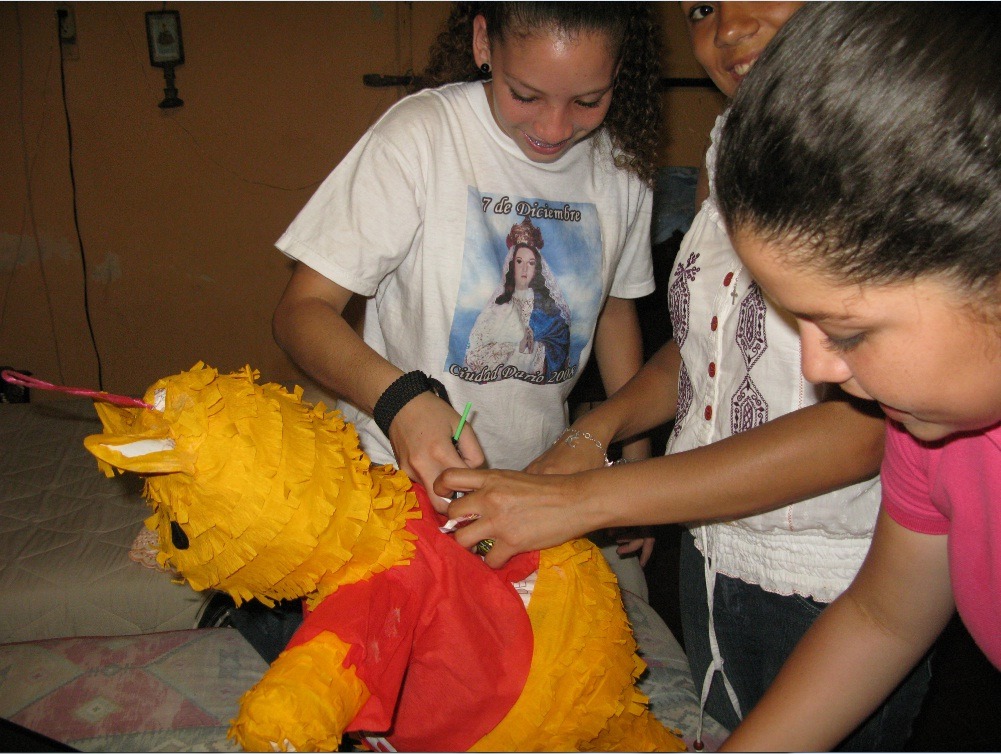
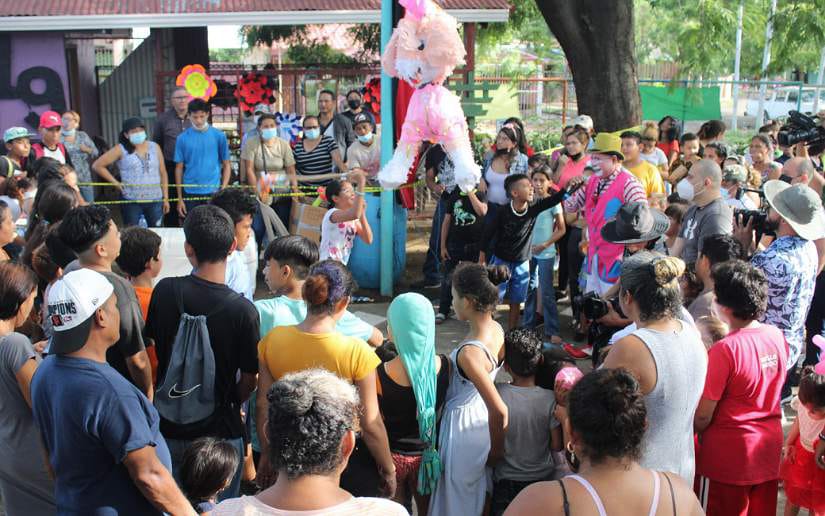
It has been pouring with rain all day and we were picking on brujita again and also back there tomorrow. There has been a high wind as well. We were actually quite cold and worn out by the end. There was a big meeting in the office about the harvest. A lot may be lost as the berries get heavy with water and fall off. Everyone was setting new targets but keeping in mind quality. Our UPE is the best in the Empresa with 90% quality and our UPE is the best of four in the area. So, the pressure to pick is harder. Rene, our supervisor, praised the quality of our picking.
Shortly after this, Hal called an emergency meeting to tell us that seven planes had flown over from Honduras and bombed a town near Managua and Wiwili, near the border. Daniel showed us the map; in fact, they were planes from Honduras and Costa Rica.
We were mostly worried about our families back home who would worry if/when this was reported. We wondered how to contact them, but in the end we decided there was nothing we could do and probably our families would contact Dave Thomson (the NSC co-ordinator based in Managua) or the NSC office in London, if they were worried.
———————————————————————————————————
Maylin and the rest of the Bread and Roses brigade spent another week in Nicaragua and returned safely to the UK.
As with other study tours, delegations and brigades to Nicaragua, members played a critical role in strengthening UK solidarity with Nicaragua at a time when the illegal contra war and sanctions continued and the crisis of shortages in Nicaragua deepened.
Among many solidarity actions they were involved in the following: lobbying their local MPs, collecting signatures to a petition to the US Embassy; writing articles and giving talks locally community organisations, trade union branches and networks; collecting health and education supplies (as part of the Nicaragua Must Survive Campaign); and setting up twinning links.
For information on NSC’s history including the role played by brigadistas see Nicaragua Now No 10
